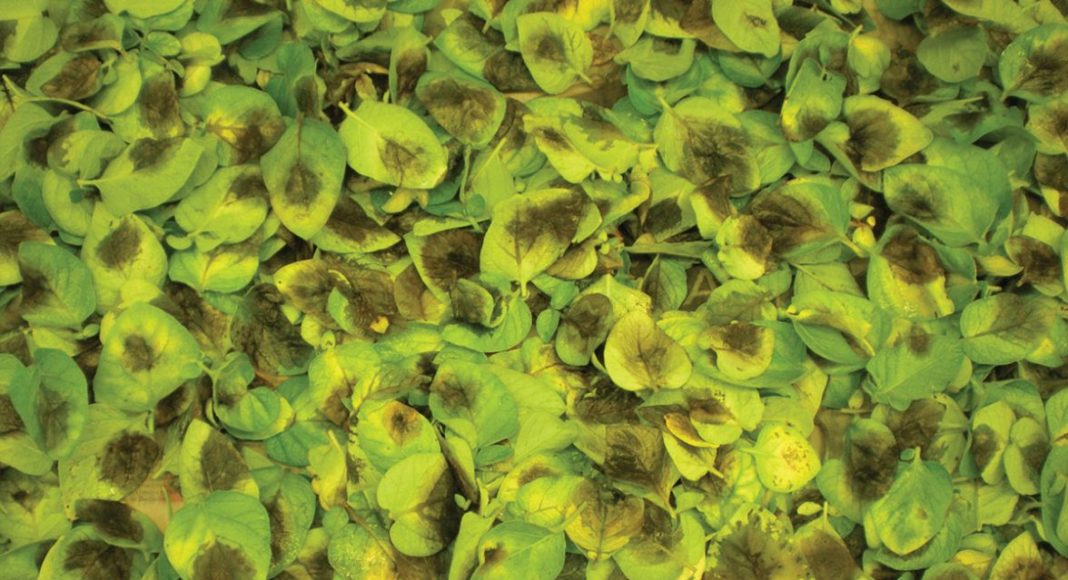Results from early trials of genetically modified potatoes conducted by the International Potato Center (CIP) show great promise in the global quest to tame late blight, the scourge of smallholder potato farmers and large producers globally.
CIP is dedicated to improving food security for smallholder farmers and reducing or eliminating late blight in potato would help fulfill that mandate. For this reason, the organization is looking at ways to develop a GM potato that’s resistant to late blight.
“Everywhere you grow potatoes, you have late blight,” says Marc Ghislain, program leader at CIP. “It is the number-one disease afflicting potato crops.”
Late blight, responsible for the 19th century Irish potato famine that led to one million deaths by starvation, still affects more than three million hectares of potato globally and causes economic losses estimated at $2.75 billion USD a year. In Uganda alone, loss due to late blight can be up to 60 per cent, which translates into annual loss of over $129 million USD.
Currently, fungicides are the primary means farmers have to attempt to stave off against late blight’s advance, says Ghislain. Yet their application takes a significant bite out of smallholder’s profit margin that can be as much as much as one-quarter of a smallholder farmer’s annual profits.
Moreover, especially in developing countries, fungicides are often used incorrectly, reducing the efficacy of the product. Since farmers in these areas do not use protective clothing, there is an increased risk to human health, Ghislain warns.
“There would be a significant impact if we could provide to the smallholder a [potato] variety that is less dependent on fungicides” to thrive, he explains.
That’s a critical reason CIP is exploring a genetically modified potato as one potential solution for late blight resistance.
“The GM approach is much faster than conventional breeding,” which can take decades, explains CIP program leader Greg Forbes. “In theory, [late blight resistant] genes could be incorporated into breeding materials with conventional breeding, but the time and cost are both much greater.”
CIP researchers have tested three genes from several wild potato relatives; preliminary results have shown them to be late blight-resistant. The results of this work “left us quite optimistic,” says Ghislain.
To test whether the resistance will hold in the field, trials began this year in Uganda and will go on for several seasons. Similar efforts that use different resistance genes from a number of potato species are underway by researchers in many countries, including Bangladesh, India, Indonesia, the UK, the Netherlands, Belgium and the US, Ghislain says.
Across these trials, positive results are leading researchers to believe that a combination of GM crops, breeding and reduced fungicide application, if any, promises to be the long-term solution to fighting late blight.
To learn more, visit the International Potato Center.











